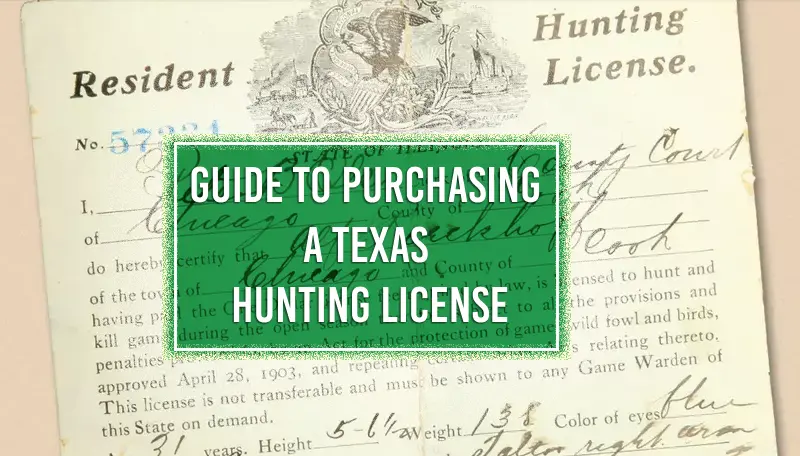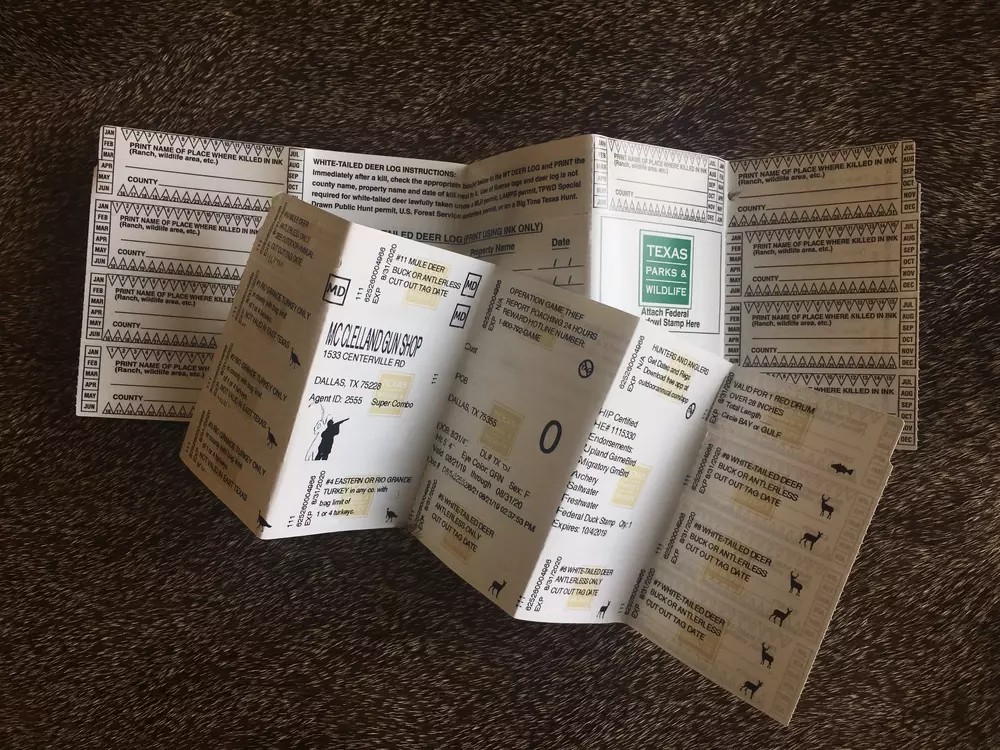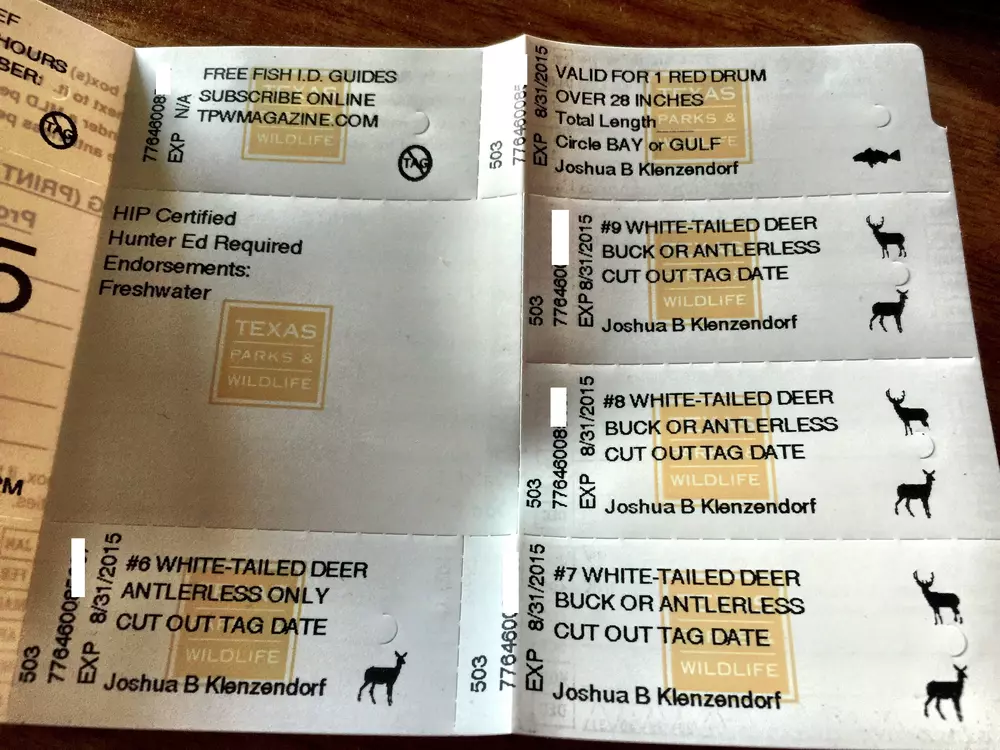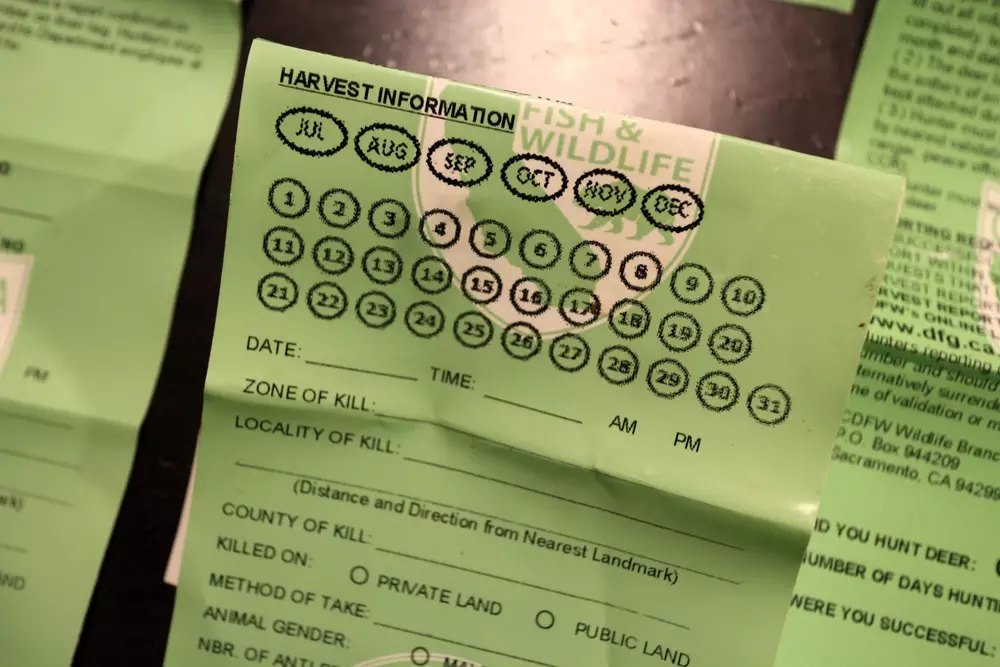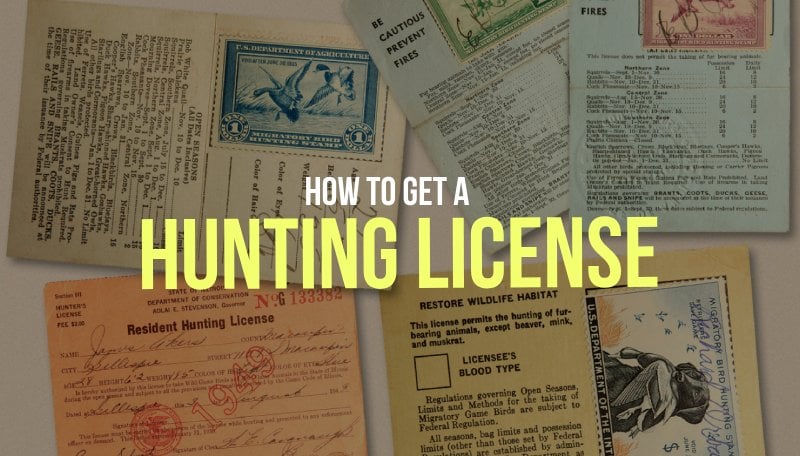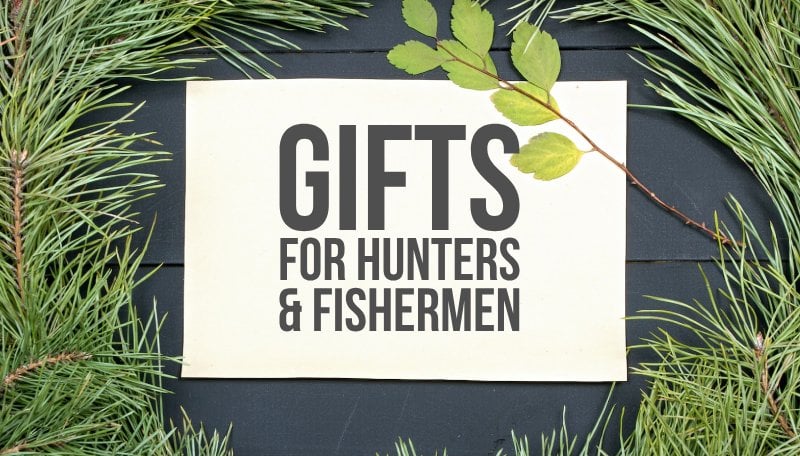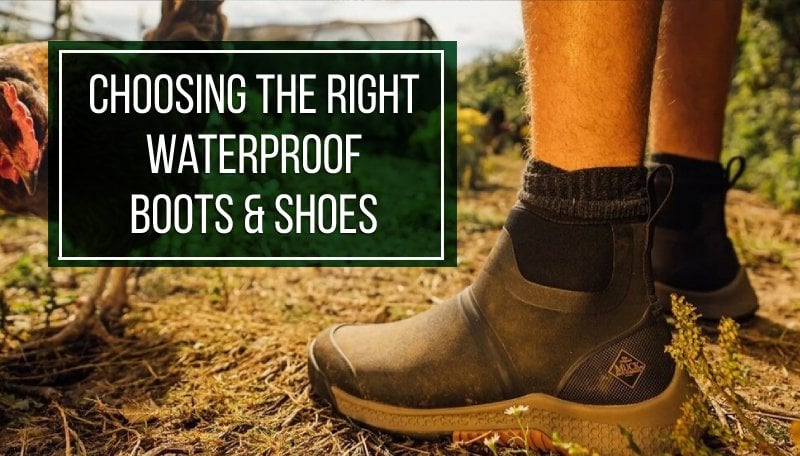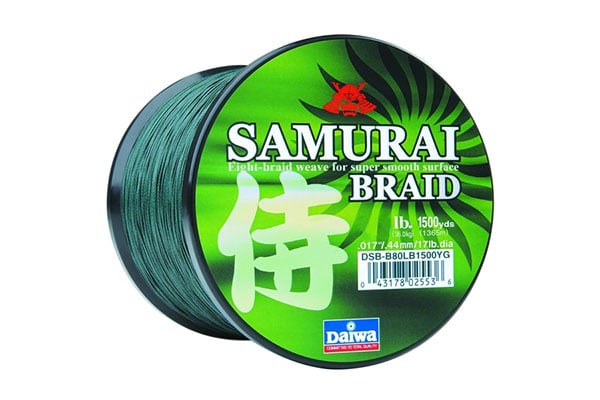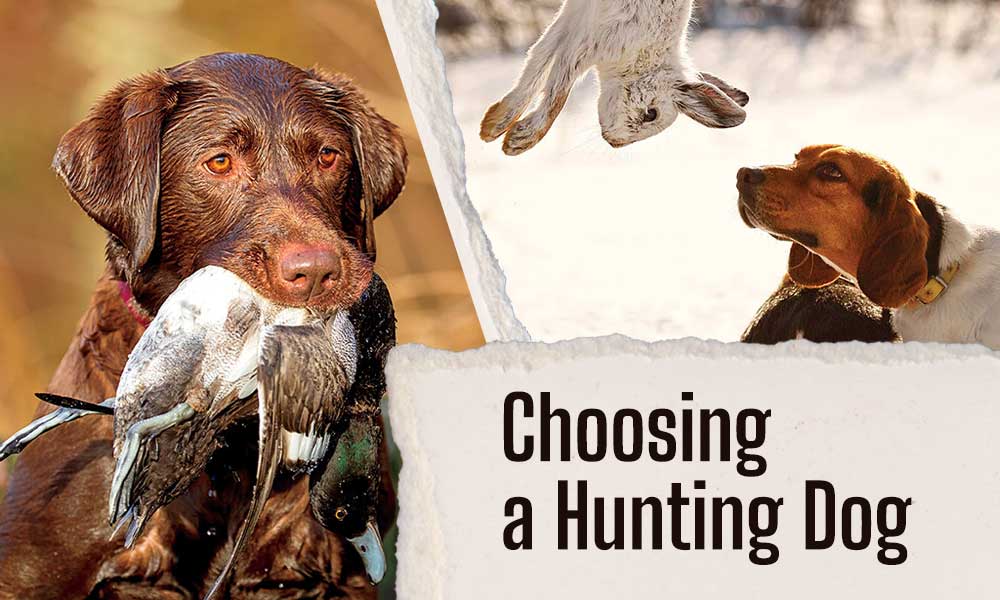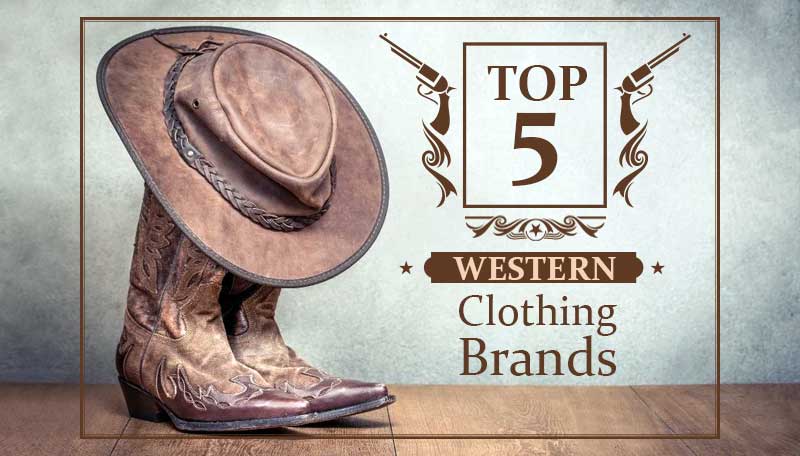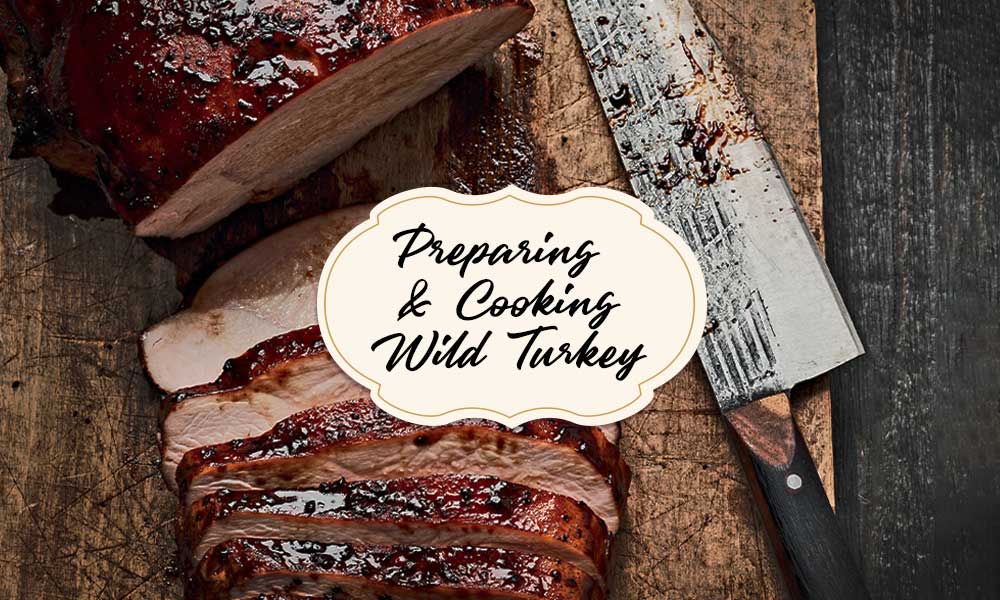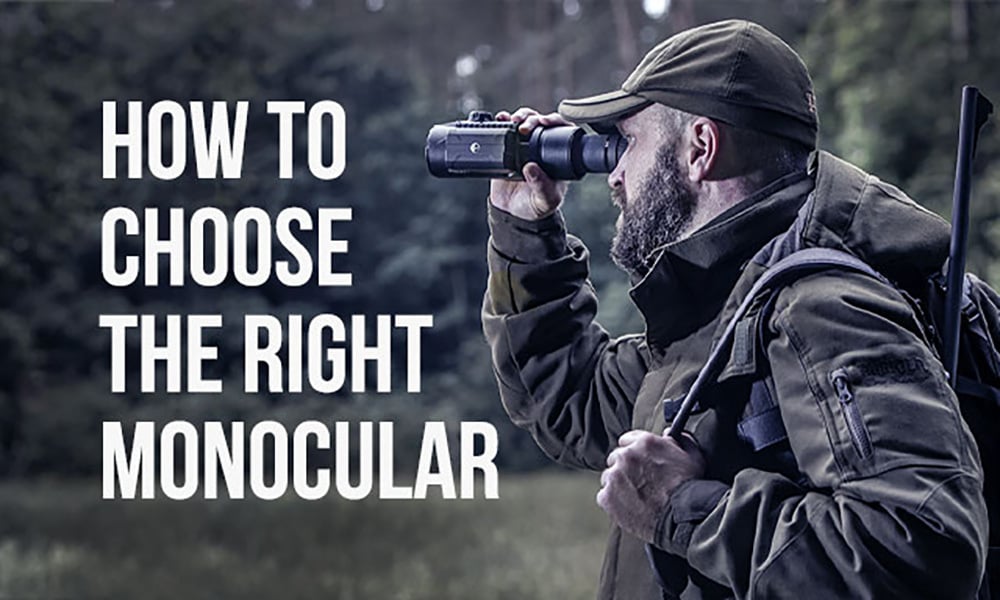Last Updated on
In the Lone Star State, hunting is one of the mainstays of residents’ identity. The diverse wildlife and vast landscapes also made Texas a prime destination for hunters from other states. Ut whoever you may be, a resident or a guest, it’s crucial to understand the rules you should play by. One of such rules is obtaining a Texas hunting license. We’ve examined the Texas Parks & Wildlife Department’s website (give it a look later) and made a compendium of the most important points.
Table of Contents
Why You Need a Hunting License in Texas
Different Types of Hunting Licenses
Resident Licenses
Youth Hunting License
Hunting Lease License
Trapper’s License
Non-resident Licenses
Hunting Endorsements
How to Purchase a Texas Hunting License
FAQs
Why You Need a Hunting License in Texas
First and foremost, it’s a legal requirement. If you don’t want to violate Texan law, you are to acquire a hunting license whether you plan to hunt animals or birds, frogs or turtles. The cases when you can hunt animals without one are very few and specific, such as coyotes attacking livestock or feral hogs on private property with landowner authorization. Those do not occur too often and probably won’t cover the species you are interested in. But hunting without a license is fraught with legal consequences, including fines and possible jail time.
As if abiding by the law wasn’t already enough, there are actually benefits to purchasing a license. The fees from hunting licenses provide crucial funding for wildlife management projects. These funds help conserve Texas’ diverse ecosystems, ensuring that future generations can enjoy the same hunting opportunities as you.
Owning a hunting license allows you to get a public hunting permit, which grants you access to public hunting land areas. It also involves getting educated on safe and responsible hunting practices, which is something every hunter should do.
So, even though there is no bypassing the license requirement, it is not that much of a burden, given the price and the benefits it brings to you and the whole hunting community.
Different Types of Hunting Licenses in Texas
There are several categories of hunting licenses depending on the person’s residency, age and intention. Each license is valid from the date of purchase until the last day of summer, August 31. The Lifetime License is not subject to this rule.
Resident Licenses
A Resident Hunting License is required of a Texas resident who wishes to hunt any legal bird or animal. This license is a mainstay of hunting in Texas, but it’s not an all-in-one ticket into the hunting world. Depending on what and how you’re planning to hunt, you might need to acquire additional endorsements. We’ll cover all the endorsements later in the article (click here to jump to them).
Obtaining a Resident Hunting License is no rocket science. The license costs only $25. You will need to provide proof of residency, typically a valid Texas driver’s license or ID card.
If you are 65 years of age or older, you can apply for a Senior Resident Hunting License. It costs only $7, but in all other respects functions as a regular Resident Hunting License.
Youth Hunting License
The Youth Hunting License is offered by the Texas Parks & Wildlife Department to young hunters under 17 years of age. This license is available to both residents and non-residents, so it’s an excellent choice for families who enjoy hunting together or for introducing young people to hunting. There’s no requirement for hunter education certification for this license, but it’s strongly recommended that youth hunters undergo relevant education training to learn about safe and responsible hunting practices.
The cost of this license is $7. You will also need the necessary identification, typically a birth certificate or other valid ID showing the date of birth.
One of the key advantages of the Youth Hunting License is that it exempts the holder from state hunting endorsement requirements, except for the Reptile and Amphibian Endorsement. The Harvest Information Program (HIP) certification must also be acquired if they plan to hunt migratory game birds.
Hunting Lease License
If you are a landowner looking to lease hunting rights on your property in exchange for payment, you will need to get a Hunting lease License. These licenses are a crucial part of managing and regulating hunting activities on private lands and contributing to wildlife conservation.
Both a landowner and their agent can purchase a Hunting Lease License from the Texas Parks & Wildlife Department website or a licensed retailer. You don’t need to be a Texas resident to do so. When purchasing, it’s essential to know the size of the leased property as there are three types of licenses based on the total acreage:
- Small License: For properties 1 through 499 acres – $79.
- Medium License: For properties 500 through 999 acres – $147.
- Large License: For properties 1,000 acres or more – $252.
Once obtained, the license must be displayed prominently on the property.
The main purpose of getting a lease license is to abide by the law when leasing your hunting grounds. Doing so allows you to legally receive payment or other forms of compensation for granting hunting access. It allows for controlled hunting activities on your property, which can help manage wildlife populations and maintain a balanced ecosystem.
An important point to note is that the Texas Parks & Wildlife Department (TPWD) offers opportunities to lease your land to them. If you are interested in contributing to public hunting programs and wildlife conservation efforts, you can contact the Public Hunting Program or contact your local wildlife biologist for more information about this opportunity.
Trapper’s License
Trapper’s Licenses are special types of hunting licenses meant for individuals who wish to hunt, shoot or take fur-bearing animals for sale, including their pelts and carcasses. Fur-bearing animals include species such as badgers, beavers, foxes, minks, muskrats, nutrias, opossums, otters, raccoons, ring-tailed cats and skunks. Without this license, you can only take fur-bearing animals or their pelts during the recreational season.
There are two types of Trapper’s Licenses:
Resident Trapper’s License – $19.
Non-resident Trapper’s License – $315.
The Trapper’s Licenses grant the holder the right to hunt, shoot, or take fur-bearing animals for sale. This means you can legally engage in the trapping and selling of fur-bearing animals during both commercial harvest and recreational seasons. Here’s the information on the two respective seasons:
Recreational Harvest
- Date: September 1 – August 31
- Fur-bearing animals taken as a result of recreational harvest may not be sold
- No bag or possession limit
Commercial Harvest
- Dates: Nutria: September 1 – August 3
Beaver: October 1 – May 31
All other furbearers: November 1 – March 31 - No bag or possession limit
If you are a landowner, you can take nuisance furbearers in any number and by whatever means you see fit without any license. However, you can’t retain or possess the pelts and carcasses of animals that were taken for this purpose.
Non-resident Licenses
If you are not a resident of Texas but wish to hunt within the state’s boundaries, you can choose from a variety of non-resident licenses. The options are a bit more specific and expensive than for residential licenses, but the situation is the same in every other state.
Non-resident General Hunting License
This license is available to non-residents for $315. It grants access to hunting any legal bird or animal, including deer. Endorsement requirements are still applicable. This is the only valid license available for non-residents to participate in hunting activities such as white-tailed deer, mule deer, pronghorn or bighorn sheep.
Non-resident Spring Turkey License
Available only after February 1st, this license costs $126 and is valid to hunt turkey only during the open spring turkey season. Non-residents purchasing this license are also required to purchase a $7 Upland Endorsement. It is important to keep in mind that it is unlawful to possess both this license and a valid Non-resident General Hunting License: you can only have one at a time.
Non-resident Special Hunting License
This license costs $132 and grants access to hunting exotic animals, all legal game birds (except turkey), all non-game animals, fur-bearing animals, squirrels, javelinas and alligators. It’s important to note that this license is not valid for hunting white-tailed or mule deer, pronghorn, or bighorn sheep. Endorsement requirements apply.
Non-resident Banded Bird Hunting License
Costing $27, this license is valid only to hunt banded bobwhite quail, partridge, pheasant and mallard ducks in private bird hunting areas. Both Upland and Migratory Game Bird endorsement requirements apply.
Hunting Endorsements
Having a hunting license grants you many opportunities but doesn’t neссesserily untie your hands to hunt what- or however you want. Hunting certain types of game or using certain weapons involves getting additional permits called endorsements. They are meant to regulate and manage specific hunting activities or species. Here are the main hunting endorsements you can acquire in Texas.
Archery Endorsement
This endorsement is required for any person wishing to hunt game animals during an Archery-Only open season or hunting deer in specific counties. This ensures that only hunters with adequate archery skills participate in these seasons. The Archery Endorsement costs $7.
Texas Migratory Game Bird Endorsement
This endorsement is necessary for hunting migratory game birds such as waterfowl, coot, rail, gallinule, snipe, dove, sandhill crane and woodcock. The endorsement helps in managing and conserving migratory bird populations by controlling hunting pressure and providing funds for conservation efforts. It also costs $7.
Upland Game Bird Endorsement
For anyone planning to hunt turkey, pheasant, quail or chachalaca, this endorsement is a must. It cannot be used for hunting turkey with a Non-resident Special Hunting License. For that, you need a Non-resident Spring Turkey License. The Upland Game Bird Endorsement costs $7 as well.
All of the above-mentioned endorsements are not required of hunters below the age of 17. The two following ones, however, are mandatory for anyone involved in related activities.
Federal Duck Stamp (Migratory Bird Hunting and Conservation Stamp)
All waterfowl hunters age 16 and older must have this stamp. It serves a dual purpose: it’s both a license to hunt and a revenue source for purchasing and protecting wetlands that serve as habitats for waterfowl and other wildlife. The endorsement costs $25 plus the fulfillment expenses.
Reptile and Amphibian Endorsement: This endorsement is required for capturing indigenous reptiles or amphibians on the shoulder of a public road or any unpaved area of a public right of way. It helps regulate the collection of these species and contributes to their conservation. The endorsement costs $10.
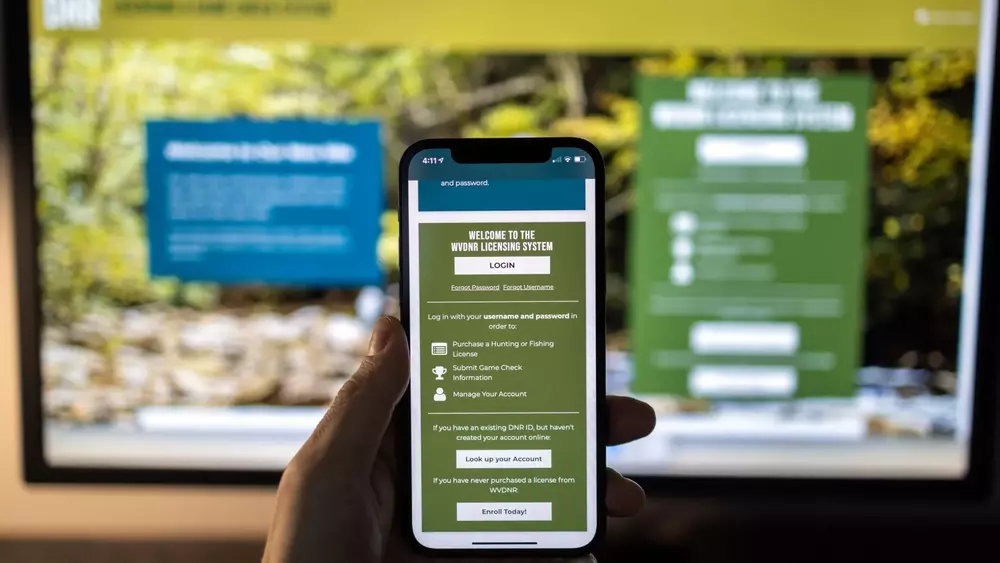
How to Purchase a Texas Hunting License
Purchasing a hunting license in Texas is made accessible through various means, and the Texas Parks & Wildlife Department (TPWD) offers both printed and digital versions of licenses to suit different preferences.
Purchasing a Hunting License
You can buy a hunting license through the official TPWD website or at one of approximately 1,800 retail locations throughout the state. These retail locations include sporting goods stores, gun shops, department stores, discount stores, bait and tackle shops and TPWD regional and field law enforcement offices. Some commercial hunting and fishing licenses are available exclusively at the Austin headquarters and TPWD regional and field law enforcement offices.
Hunting licenses can also be purchased by phone or online, with a $5.00 administrative fee. Licenses that require tagging, such as for deer and turkey, cannot be used immediately upon their purchase: you need to wait for the physical tags to arrive.
Now, you can buy a license either online or in a physical location, but what about the license’s format? You can get a digital license or a printed license, whichever you find more comfortable to use.
Printed License
A printed license is a physical copy of your hunting license. If you purchase a printed license online, it should arrive in 7 – 10 days with standard delivery. If you do not receive your license within 30 days of purchase, you should contact TPWD. After 45 days from the purchase date, you will be responsible for purchasing a replacement license. Harvested animals that require tagging must be tagged with the paper license tags that will be mailed together with the license.
Digital License
If you have no love for printed licenses or are afraid of losing yours, you can always get a digital license. Such licenses will not print, so you must be able to display yours and report your harvest electronically. You can only buy a digital license online. However, it’s important to note that few digital licenses offer digital tagging options. Learn about all digital license and tagging options in Texas.
Conclusion
Navigating all the peculiarities of Texan hunting licenses and endorsements might seem overwhelming at first, but once you give it a good look, it becomes as easy as one-two-three. Make sure to check your eligibility for various licenses before you make the decision, and don’t forget about the endorsements. With both printed and digital versions available, you can choose whichever type you find more comfortable.
FAQs
How long is a hunting license valid?
Unless specified, hunting licenses are valid from the date of sale until August 31 of the same year.
Can I hunt without a license in Texas?
The scenarios in which you can hunt animals without a license are few and far between. As a rule, hunting without a license in Texas is not permissible. This rule applies to both resident and out-of-state hunters, those using both private and public lands and hunting on their own or leased land.
Is there a Lifetime Hunting License in Texas?
Yes, TPWD offers lifetime licenses, but only to Texas residents. A lifetime license includes all state endorsements other than the Reptile and Amphibian endorsement. Learn more about Lifetime Hunting Licenses on the TPWD website.
